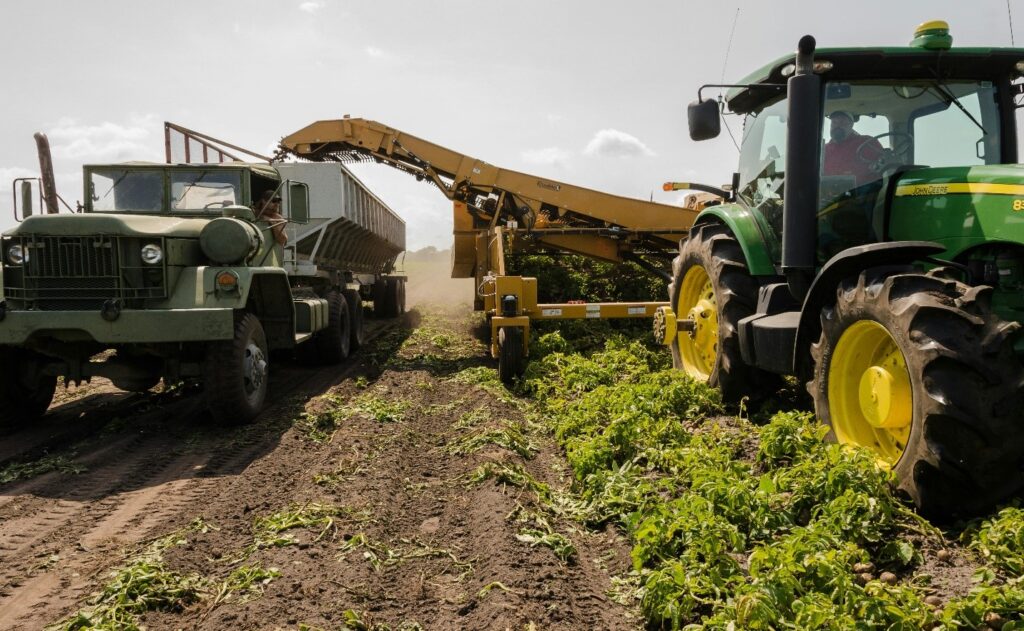Agriculture

Enhancing Quality, Safety, and Sustainability in Agriculture
CAS-NET helps maintain high standards for quality and safety in agricultural products. By adhering to these standards, producers can ensure their products are safe for consumption, free from harmful substances, and of consistent quality. CAS-NET rigorously assesses agricultural practices and products to ensure they meet national and international quality standards. This ensures consumers receive high-quality, reliable products.
Read more on how Certification affects Agriculture
- CAS-NET enhancing the Agricultural Sector?
- Ensuring Product Quality and Safety
CAS-NET helps maintain high standards for quality and safety in agricultural products. By adhering to these standards, producers can ensure their products are safe for consumption, free from harmful substances, and of consistent quality.
For Instance: Food safety standards, global GAP standards, food product certification.
- Quality Assurance: CAS-NET rigorously assesses agricultural practices and products to ensure they meet national and international quality standards. This ensures consumers receive high-quality, reliable products.
- Safety Standards: Certifications such as HACCP and ISO 22000 help prevent foodborne illnesses by identifying and controlling potential hazards in the food production process.
- Promoting Sustainable Agricultural Practices
CAS-NET plays a vital role in promoting sustainable practices that protect the environment and conserve resources. Standards like organic, Rainforest Alliance, and sustainable agriculture certifications encourage farmers to adopt eco-friendly practices.
For Instance:
- Environmental Protection: Sustainability certifications promote practices that reduce environmental impact, such as minimizing pesticide use, conserving water, and maintaining soil health. Ask us about Ecomark Certification.
- Long-term Viability: By adopting sustainable practices, farmers ensure the long-term viability of their operations, benefiting both the environment and future generations.
- Enhancing Market Access and Competitiveness
Certified products often have better market access and can command higher prices. Certifications can differentiate products in the marketplace, making them more attractive to consumers and retailers, especially in international markets.
Why our certification is valuable:
- Market Differentiation: Certification labels like organic, fair trade, and non-GMO help products stand out in a crowded market, attracting health-conscious and ethically minded consumers.
- Export Opportunities: Certifications such as Global GAP are often required for exporting fresh produce to Europe and other markets, opening new growth opportunities.
- Supporting Ethical and Fair-Trade Practices
Certifications ensure ethical practices are upheld in the agricultural sector, protecting workers’ rights and ensuring fair wages. This is crucial for improving the livelihoods of small-scale farmers and laborers.
For Instance:
- Fair Compensation: Fair Trade certifications ensure that producers receive fair compensation for their products, which helps improve their standard of living and supports community development.
- Ethical Labor Practices: Certifications require adherence to ethical labor practices, ensuring safe working conditions and fair treatment of workers.
- Facilitating Traceability and Transparency
Certification bodies help establish systems for tracing the origin and journey of agricultural products. This transparency is crucial for ensuring product authenticity and managing food safety risks.
For Instance:
- Supply Chain Transparency: Certifications provide a traceable path from farm to table, giving consumers confidence in the origin and quality of their food.
- Accountability: Traceability systems help quickly address issues like contamination or recalls, ensuring consumer safety and maintaining brand integrity.
- Encouraging Continuous Improvement and Innovation
Certification bodies encourage ongoing compliance with standards and often require periodic audits, pushing agricultural producers to continuously improve their practices and adopt innovative methods.
For Instance:
- Continuous Improvement: Regular audits and compliance checks ensure that certified producers are continually improving their practices, adopting new technologies, and staying ahead of industry standards.
- Innovation: Certification bodies often support research and development in sustainable and efficient farming techniques, fostering innovation in the agricultural sector.
Food and Beverages

Enhancing Quality, Safety, and Sustainability in Food and Beverages
The food and beverage industry are crucial for public health, economic development, and cultural expression, providing essential nutrients and culinary experiences. The food and beverage industry is a significant contributor to economic growth. It encompasses a vast range of activities from agriculture and food processing to distribution and retail, generating substantial revenue and contributing to GDP.
Read more on how Certification affects Food and Beverage
At CAS-NET, we offer a range of services designed to support the food and beverage industry in delivering high-quality, safe, and enjoyable products. Our services include:
- Quality Control and Assurance: Implementing credible quality control measures to ensure products meet high standards of safety and excellence.
- Product Development: Assisting in the creation of new and innovative food and beverage products that cater to market demands and consumer preferences.
- Supply Chain Management: Optimizing the supply chain to ensure efficient, safe, and timely delivery of products from farm to table.
- Regulatory Compliance: Helping companies navigate complex regulations and ensure compliance with local, national, and international food safety standards.
Certification plays a vital role in the food and beverage industry by:
Verifying Standards: CAS-NET verifies that products meet established safety, quality, and sustainability standards. This includes checks for proper handling, storage, and preparation practices.
Enhancing Consumer Trust: Certified products provide consumers with confidence that the food and beverages they consume are safe, high-quality, and responsibly produced.
Facilitating Market Access: Certification can be a prerequisite for entering certain markets or retail channels, ensuring products meet the necessary standards for distribution and sale.
Promoting Best Practices: CAS-NET encourages the adoption of best practices within the industry, leading to continuous improvement in food safety and quality.
At CAS-NET, we are dedicated to upholding the highest standards in the food and beverage industry. We provide comprehensive support to help companies achieve and maintain certification, ensuring their products meet all necessary regulations and standards. Our expertise in certification processes helps businesses build trust with consumers and succeed in a competitive market.
